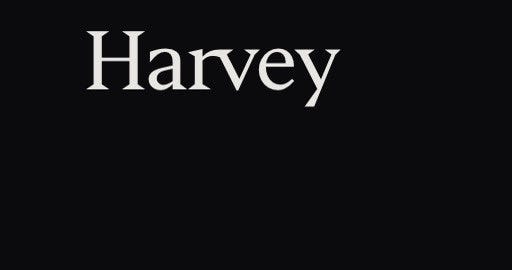Watershed Unicorn Deal AI for Law: USD 1B vLex + CLIO : Harvey Misses Out
Dynamism in AI for Law Market in a Whopper Deal, Implications
Clio’s $1 Billion Acquisition of vLex: A Game-Changer for Legal Tech
A Landmark Deal in Law for AI
On June 30, 2025, in one of the biggest deals in the AI for Law space yet in this new market, the legal technology landscape witnessed a seismic shift when Clio, a leading provider of legal practice management software, announced its definitive agreement to acquire vLex, a pioneer in AI-powered legal intelligence, for $1 billion in a mix of cash and stock.
This acquisition, Clio’s most significant to date, marks a bold step toward integrating operational efficiency with cutting-edge research capabilities, potentially reshaping the $1 trillion global legal services market.
As the deal awaits regulatory approval with an expected closure later in 2025, it has already sparked widespread discussion among legal professionals, investors, and tech enthusiasts alike.
Guys, I have personally found as a practitioner Clio to be time-consuming to use. Too many click throughs and cells to enter, too many options, too much “work” which is effectively not billable. Granted I have been at this 20+ years and we all have “our ways” and I’m a doc and spreadsheet guy — for me Clio is an admin-heavy application — perhaps best for an admin to work on behalf of lawyer.
HOWEVER THIS DEAL CHANGES, if I can obtain effective AI inside of Clio, like Vincent AI, I and others like me have new impetus to get into Clio for use of vLex which is a super effective tool. This is a shrewd deal by Clio imo. Clio should look to beef up more with deals like this for real effective practitioner tools.
The Deal: A Strategic Merger of Strengths At the heart of this acquisition is the synergy between Clio’s robust practice management platform and vLex’s expansive legal research ecosystem.
Clio, trusted by over 200,000 legal professionals, offers tools for billing, case management, and client communication, serving as the operational backbone for law firms worldwide.
vLex compliments well — bringing to the table its global legal research platform, which includes access to over one billion legal documents from more than 110 countries and its advanced AI tool, Vincent AI.
This tool, recognized for its precision in legal research (as noted in the Journal of Legal Technology, 2024), leverages artificial intelligence to deliver actionable insights from an unparalleled knowledge base.
The financial structure of the deal values vLex at $1 billion (€850 million), a testament to its growth trajectory.
Notably, Oakley Capital, which acquired a 60% stake in vLex for €70 million in 2022, stands to reap a WHOPPER 10x return on its investment. These are great private equity / vc multiples which will spur further investment in AI for Law. Hooray.
Because Oakley’s exit highlights the lucrative potential of AI-driven legal tech startups and underscores the competitive stakes in this rapidly evolving space.
Competitive Context: A Missed Opportunity for Harvey — The acquisition itself carries a narrative of competition and missed opportunities.
Approximately a year ago, Harvey, an AI-native legal tech startup, attempted to acquire vLex but failed to close the deal.
This setback for Harvey contrasts sharply with Clio’s success, positioning the latter as a formidable player against traditional giants like LexisNexis and Thomson Reuters’ Westlaw. It also shows the power of upstart startups in AI for Law.
The integration of vLex’s proprietary legal data with Clio’s workflow tools creates a defensible “moat” through data-driven AI capabilities, a strategic advantage that could redefine industry standards.
The Strategic Impact: Redefining Legal Workflows — The merger aims to create a unified platform where legal professionals can manage, research, and execute their work seamlessly. By combining Clio’s operational tools with vLex’s research prowess, the new entity promises to cater to a broader market, including large law firms and international clients.
There is an international/global dimension also given vLex’s roots in Barcelona, Spain — founded in 2000 by brothers Lluís Faus (CEO) and Angel Faus (CTO), and its 2023 merger with Fastcase, which established the world’s largest law library.
It is said that in the acquisition the parties will work toward enhancement of “agentic AI” capabilities—systems that can autonomously handle complex tasks like contract drafting and case outcome prediction.
Emerging research, such as a 2025 report from MIT Technology Review, suggests that such technologies could boost legal workflow efficiency by up to 30%, a prospect that could revolutionize how law firms operate.
Guys it will be more like 50-60% automation on the lawyer-user side.
Broader Trends in AI for Law — The acquisition highlights the broader trend of consolidation and innovation in the legal AI market.
According to a 2024 report by Grand View Research, the adoption of machine learning and deep learning technologies—key components of platforms like Vincent—accounted for over 63% of the market share, driven by the need to analyze vast legal datasets and automate repetitive tasks.
The Clio-vLex deal aligns with this shift, as modern legal AI platforms increasingly integrate natural language processing (NLP) and machine learning (ML) to enhance accuracy and decision-making.
Moreover, the deal elevates vLex to unicorn status, making it one of the few Spanish technology companies to achieve this milestone.
A New Era for Legal Professionals - Practically Speaking
As the deal progresses toward completion, the combined entity of Clio and vLex is poised to redefine the mechanics of legal work.
The integration of vLex’s award-winning research assistant with Clio’s user-friendly interface could empower lawyers to focus on higher-value tasks, delegating routine operations to AI-driven systems.
Industry experts anticipate that this move will challenge the dominance of traditional legal research providers, forcing competitors to accelerate their own AI initiatives.
For we legal professionals, the implications are quite profound: practically, professionally, economically, and globally.
Autonomous Law just took a giant leap forward.








